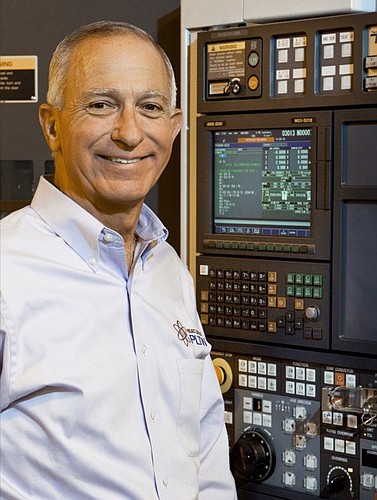- November 26, 2024
-
-
Loading

Loading

Paul Wahnish had just retired as a mechanical engineer in 1999 when he quickly started looking for something else to do. So he offered his services as a substitute teacher and middle-school basketball coach in north Pinellas County.
But the principal of East Lake High School recognized that wasn't enough, so he asked Wahnish what he really wanted to do. His answer: Start an in-school program that would get students interested in engineering and technical fields, tapping their off-campus interest in computers and video games.
“The key for me was to be able to spend time with my own kids,” Wahnish recalls. “I ended up with thousands of kids throughout the South.”
As founder and president of Palm Harbor-based Career Technical Education Foundation Inc., Wahnish has expanded his idea from a simple robotics club at East Lake to a statewide and regional program reaching high school students in 55 of Florida's 67 counties. CTEF is tied in with Project Lead the Way, a national program focused on the STEM curriculum — science, technology, engineering and math — that uses practical applications instead of textbooks.
CTEF has grown from 24 students starting in 2003 to more than 600 today, says Wahnish, adding that 225 students had to be turned away this year because of current size limitations. It has been recognized by Project Lead the Way as a top 10 national model engineering school and one of three Centers of Excellence by Pinellas County Schools.
Starting CTEF was not an easy task from the outset. Wahnish recognized that school board funding was out of the question, particularly in Pinellas, so he went to the private sector for financing.
St. Petersburg-based Jabil Circuit Inc. was the primary benefactor, committing $10,000 annually through the first four years of CTEF's existence. “They jumped in with both feet and have been involved ever since,” Wahnish says. The amount was based on the $43,000 cost estimated by Jabil to put someone to work on its floor, he says.
The foundation put 46 students from Pinellas, Pasco and Hillsborough counties to work this past summer at eight different companies such as Jabil, Coastal Caisson and Nielsen Co. Wahnish says the hands-on experience should help those students realize what they learn in school now will be practical knowledge throughout their working years, a point many teachers fail to get across.
He cites statistics from the Bill & Melinda Gates Foundation that at least 70% of high school dropouts nationwide were making passing grades and on their way to graduating, but simply lost interest in classes. Furthermore, 81% of dropouts called for real-world learning opportunities.
Making it interesting
“I see it as a teacher and it's a scary thing,” says Wahnish, who has taken a one-year leave of absence from East Lake to consult other schools wishing to launch their own programs similar to CTEF. “The reason is we haven't made it interesting enough for students to understand. Today's students, for the most part, are probably brighter than we were, but we haven't challenged them.”
Ideally, Wahnish would like to see students as early as third grade taking an hour of tech-related classes each day. He says youngsters currently spend far more time each day with some sort of technology, whether it's watching TV, playing games or texting on a wireless phone.
He points to Germany as a good example after studying the education system there. “By the time they're in sixth grade, they're deciding what they're going to be,” he says. “We think it's eighth grade in the United States. That's a good opportunity for us.”
Even teaching basic household repairs, or the basic difference between flat and cross-head screws, would be a leap from what most schools offer in the way of tech education now, Wahnish says. It might even save a kid's life where household wiring is involved, he points out.
Partnering with Kelly
CTEF has partnered with Troy, Mich.-based Kelly Services Inc., a worldwide staffing company with offices along the Gulf Coast, to help qualified students with internships and career placement related to tech.
An online program is designed to teach students the proper job search and interviewing skills, from building a resume to dressing properly.
“Through our partnership, Kelly and CTEF have had the unique opportunity in the greater Tampa Bay market to play a role in preparing our future workforce,” Kelly stated in a news release. The company cites placement of 12,000 engineering workers annually.
CTEF has also aligned its high school STEM program with various post-secondary schools in the Tampa Bay market, such as Kettering University's satellite school at Pasco-Hernando Community College. Other arrangements have been established with the University of South Florida, St. Petersburg College and Marchman Technical Education Center, and negotiations are under way with Eckerd College and USF Polytechnic.
During his current leave, Wahnish spends quite a bit of time traveling to other school districts within Florida and the Southeast answering questions and formulating plans for programs like CTEF. This includes 22 Title I school districts in low-income areas: “They are absolutely begging us for help,” he says.